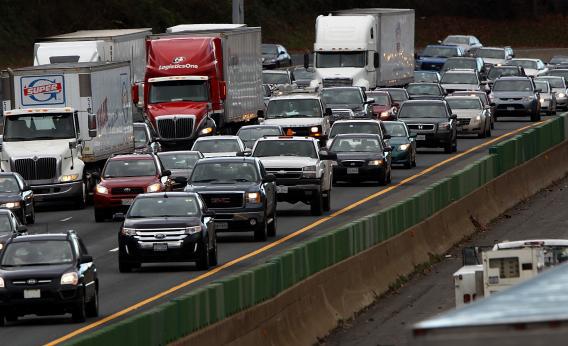The Senate passed a bill Wednesday that requires all new cars to be equipped with data recording devices starting in 2015.
The transportation bill, called Moving Ahead for Progress in the 21st Century Act (MAP-21), also gives the government the ability to revoke someone’s passport if he or she has “delinquent tax debt” over $50,000. The bill has yet to pass the House of Representatives, whose version may also include approval of the XL pipeline.
Lots of cars already have these so-called “event data recorders.” Forbes’ Kashmir Hill says: “They’ve been around since 1996, are found in at least 60 million vehicles, and are a feature in 85% of new cars every year.” Some insurance companies, like State Farm and Progressive, offer customers a reduced rate if they install the recorders. But MAP-21 is the first attempt to make the technology mandatory.
The bill specifies that only the owner of the vehicle would have access to the information collected, unless 1) the owner consents otherwise; 2) a court authorizes another party to view the data; 3) certain specified types of investigations require the information; or 4) a medical team needs the information to give proper treatment.
Venture Beat’s Sarah Mitroff argues that since so many cars already have this little black box, the bill is not a big deal—and actually be a good thing for drivers. She writes, “Despite privacy concerns over the bill, it may end up reducing privacy problems in the long run. It explicitly states that the owner of the car owns the EDR data, an issue that has been debated in the past.”
But the Atlantic’s Megan Garber disagrees:
[T]hey’ll make GPS tracking in cars not an anomaly, but an assumption. They’ll be an implicit, omnipresent threat to personal privacy. They’ll take the thing that has been Americans’ prototypical symbol of freedom and individuality—the car—and render it just another piece of trackable infrastructure.
Not surprisingly, conspiracy theorist Alex Jones’ site Infowars calls the bill “Orwellian” and the devices “Big Brother.”
But there are reasons to support broader adoption of EDRs. As the Atlantic’s Garber points out, drivers who didn’t realize how reckless their habits were may shape up and slow down. Digital Trends’ Andrew Couts thinks those safety benefits outweigh the privacy concerns:
While it is completely understandable—even wise—to be skeptical of government-madated [sic] use of technology, especially technology that records the things we do in our homes or cars, EDRs are not quite as nefarious as skeptics might want you to believe. In fact, a wealth of studies show that they really can help make hurtling yourself and your family down the road in a two-ton contraption at 65 MPH safer than it currently is.
